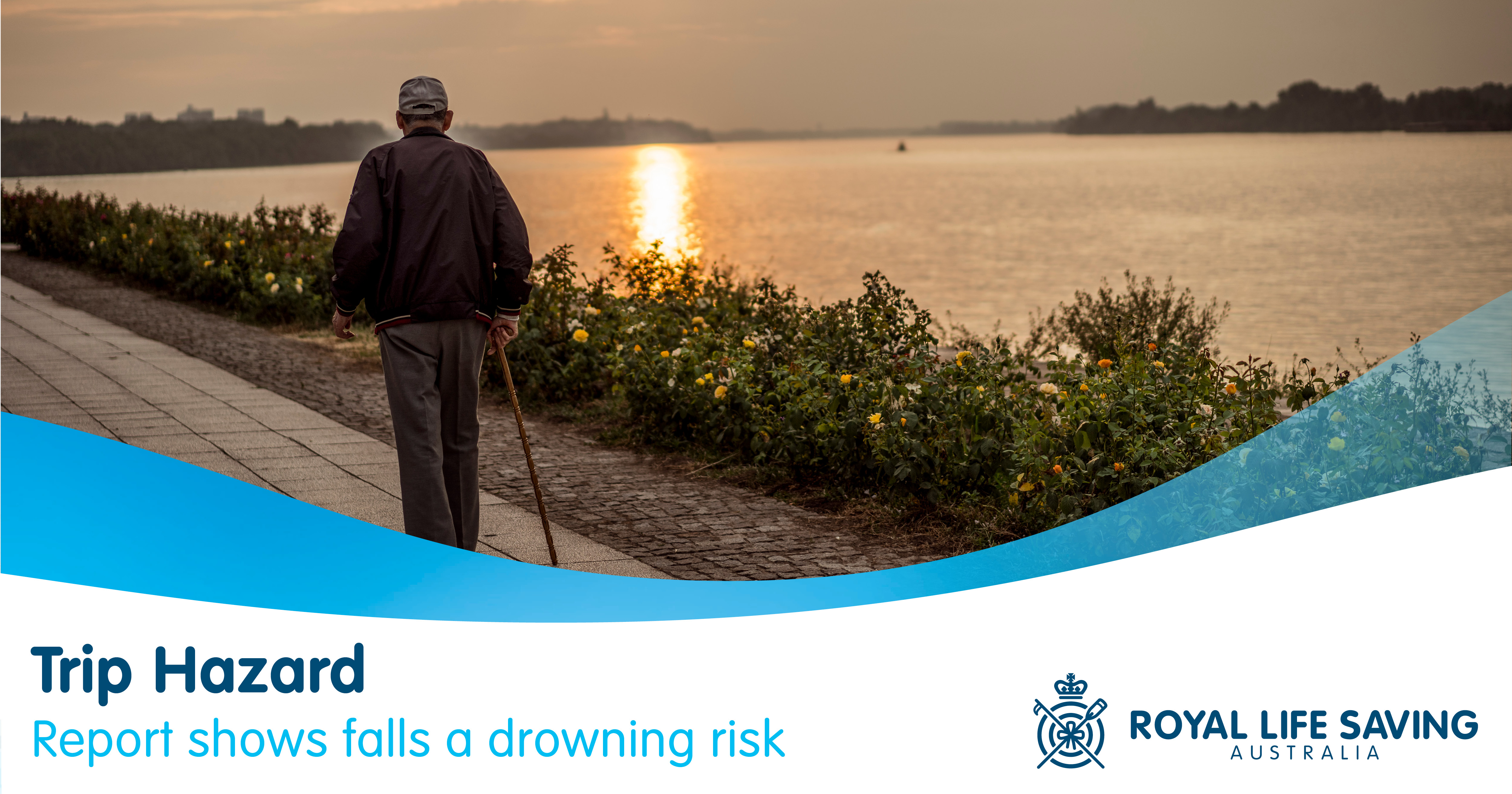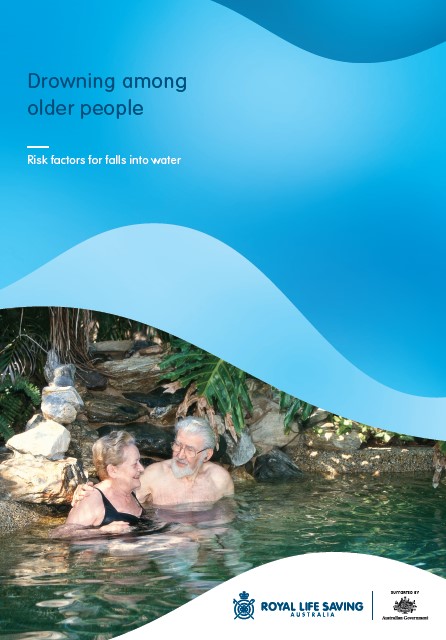Published 7 June 2022

Media Release
A new study has shed light on drowning risks for older people in Australia, with one-fifth of deaths attributable to an unexpected fall into water.
The Royal Life Saving Society – Australia research looked at 10 years of data, analysing the contributing factors in almost 600 drowning deaths in those aged 65 years and over. In most cases, fall-related drowning in older people occurred at, or close to, home.
Royal Life Saving Principal Research and Policy Officer Alison Mahony said the data highlighted the need for older Australians to be aware of water bodies around them at all times, rather than just when they planned to go swimming or boating.
“Of the 116 deaths where people fell into water, around a third drowned in a swimming pool, and a further third drowned in a river or creek,” Ms Mahony said.
“Pre-existing medical conditions, medication use, impaired mobility and use of mobility aids, history of falls and environmental hazards all contributed to falls.
“In almost a quarter of cases, the person who drowned was known to have impaired mobility. In some cases, this presented as episodes of dizziness or light-headedness.”
“A pre-existing medical condition was known to be present in 89 per cent of drowning deaths, most commonly cardiovascular disease (72%) and dementia (22%).”
In 19 per cent of cases an environmental hazard was noted as being present. These included steep or slippery surfaces near water, poor lighting resulting in low visibility, and obstacles which would have posed a trip hazard.
The largest number of deaths occurred in NSW (47%), followed by Queensland (22%).
Medication was known to be present in 60 per cent of deaths and blood alcohol concentration (BAC) was greater than or equal to (≥) 0.05% in 19 per cent of deaths.
Royal Life Saving recommends older people attend regular medical check-ups with their doctor and take any prescribed medication as directed. Specific advice relevant to an individual’s lifestyle can be obtained from a doctor or pharmacist.
Physical activity has been shown to reduce the risk of falls and fall-related injuries in older people. For this reason, Royal Life Saving promotes aquatic facilities as safe venues for physical activity and rehabilitation in a controlled environment.
Recreation and exercise at aquatic facilities can provide physical, mental and emotional health benefits, while also ensuring a safer environment for older people who are seeking low-impact activity.
The risk of falls into water among older people can be reduced by:
- Attending regular medical check-ups with a doctor
- Taking any prescribed medicine as directed
- Asking a doctor or pharmacist any specific questions related to health and lifestyle
- Participating in regular exercise to reduce the risk of falls
- Visiting the local aquatic centre for low impact activity in a controlled environment

For media enquiries, please contact Media Key on 03 9769 6488 or 0409 420 112
